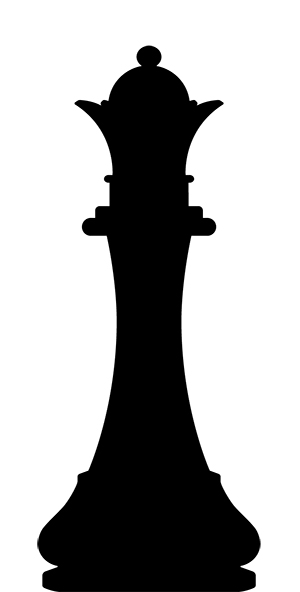Check |
| By Mike Rankin, Managing Editor |
|
|
|
As a young lad growing up in northeast Ohio, a family friend bought me a chess set for my birthday. Whenever he would come over to our house for a visit, we would play a game. It was always a blood bath, with yours truly being in the tub. I knew the rules, but strategy and tactics totally eluded me as a 10-year-old.  As I grew older, our friend moved on and so did my interest in the game. The chess set soon found itself buried in the closet. Throughout my life, that chess set has followed me from Ohio to Iowa to Illinois, back to Iowa, and finally to a couple of locations in Wisconsin. It always took its rightful place in the back corner of a closet. During the past year, my son-in-law started to teach my grandson chess during a family gathering. Soon, I was brought into a discussion of the game I had long forgotten. Next, I was shamed into playing, barely beating my 9-year-old grandson in my first chess match in over 50 years. For some reason, I have become more intrigued with the game of chess than when I was as a young boy. Perhaps it is the thought of being battered by my son-in-law and grandson for the remainder of my life, although I continue to hold the upper hand on a pool table and cornhole boards. Apparently, I am not the only one who acquired a renewed interest in chess during 2020. The pandemic, which has driven people to more idle hours at home, is given credit for a surge in the sales of chess sets. Also playing a major role was a fictional miniseries that aired on Netflix called “The Queen’s Gambit,” which tells of an orphaned chess prodigy on her rise to becoming the world’s premier chess player.  Mike Rankin Although my fate will never be that of a chess master, I have gained an extreme appreciation for the game itself. No chess piece moves the same as the others. Some pieces have more value than others, but all of them play critical roles in the attack of their opponent, even the lowly pawns. The object of chess is to checkmate the opponent’s king. This can be done in a multitude of ways. At the same time, any checkmate strategy may be thwarted by your opponent as he or she seeks to checkmate your king. It’s the ultimate game of simultaneous offense and defense that is played out in both harmony and chaos. For me, it’s mostly the latter. Harmony and chaos . . . does that sound like something else we’re familiar with? How about farming? Farming is the ultimate chess game. It’s chess on steroids. Those who approach farming or chess without some thoughtful strategy are usually doomed. Checkmate. More commonly, there is a strategy. There are also grandmaster opponents. The most common ones on the farm or ranch are uncontrollable economic factors and Mother Nature. Low farmgate prices and/or high input prices . . . check. A pandemic . . . check. A baler breakdown . . . check. Rain occurs six hours before the hay is ready to bale . . . check. Rain seemingly never falls . . . check. As in the board game, we find a defense for the check, either before, during, or after it occurs. We play on with an always present end goal of avoiding the dreaded checkmate. As with pawns in chess, small things matter. No game or year is the same. In 2021, here’s wishing you a good plan for the check, the avoidance of a checkmate, and much better skill at doing both than I have with my grandson. This article appeared in the January 2021 issue of Hay & Forage Grower on page 4. Not a subscriber? Click to get the print magazine |
